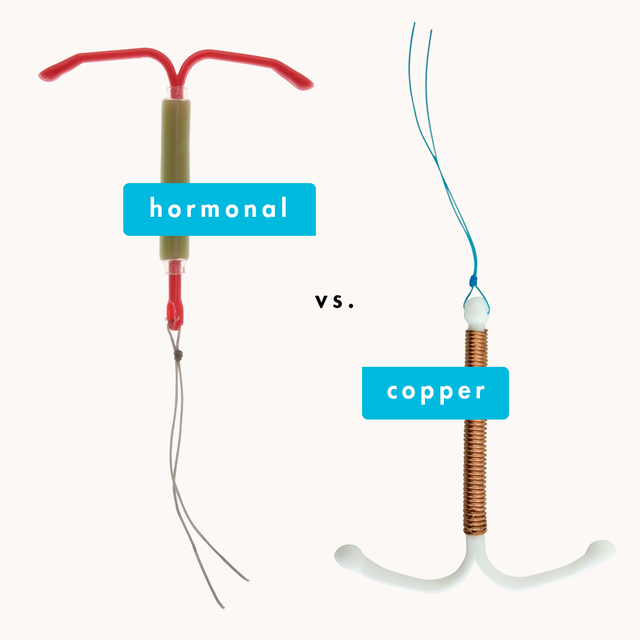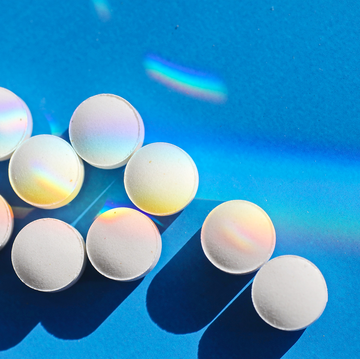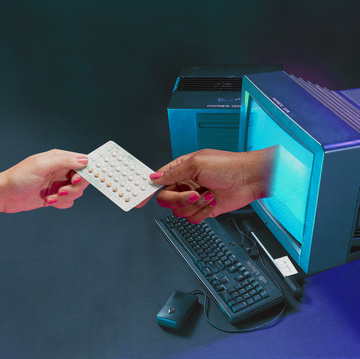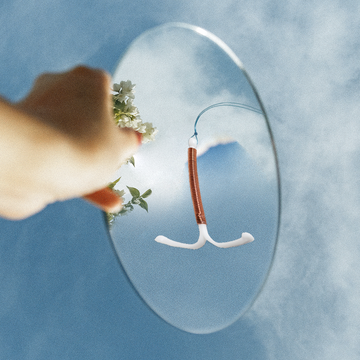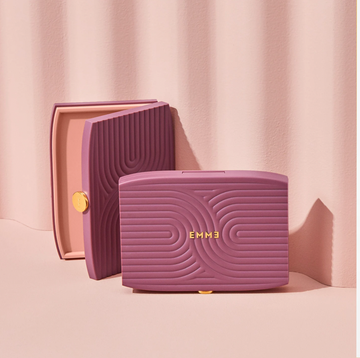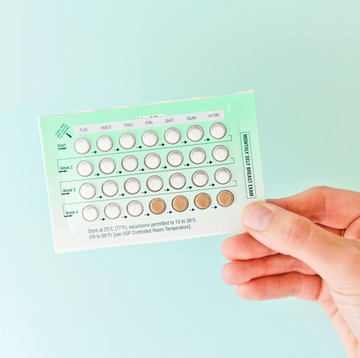If you haven't heard: IUDs, or intrauterine devices, are a very effective form of birth control (as in 99 percent effective) when placed correctly by a healthcare professional, and they're one of the most low maintenance (if not the lowest) forms of birth control that exist. So, yeah, they're kinda the best.
While there are two types of IUDs (copper and hormonal), both are small T-shaped devices that stay in your uterus anywhere from three to 10 years, depending on the kind you get. When you want to remove the IUD, your doctor can take it out and replace it (if you want). Because it’s so convenient to set it and forget it, IUDs can be a great birth control method if you’re concerned about forgetting to take pills on the daily.
If you've never had an IUD, know that insertion experiences differ with each person and not all insertion tales are horror stories. Personally, I got an IUD and was expecting the absolute worst—one friend told me it was like being electrocuted inside her belly button. But I felt one cramp that clocked in at the “wouldn’t even consider taking Tylenol for this if it was a period cramp” scale. Definitely no electrocuting. Obviously, your mileage may vary, but for every IUD horror story, there are probably more people who felt nothing.
OK, so now it's time to graduate to the next course, IUD 102: copper vs hormonal IUDs. Because these models work a little differently, I'm here to help ya figure out the best option for your body, along with the help of Dr. Tamika K Cross, MD, a board-certified OBGYN. Let's go!
1. This sounds so basique, but please talk to your doctor to figure out which version is best for you.
Dr. Cross says if you have a medical condition that prevents you from being able to use hormones or if you have or had a blood clot, you’d have to go with the copper version. On the other hand, if you have an allergy to copper or a condition like Wilson’s disease, where you can’t have copper products put inside of you, a hormonal option could be better.
2. The hormonal IUD uses progesterone while the copper IUD creates an inflammatory effect.
Progesterone works to prevent pregnancy by stopping your ovaries from releasing an egg every month, says Dr. Cross. No egg, no pregnancy. Since the copper version doesn't use hormones, you'll ovulate like normal. However, the copper on the IUD creates an environment that’s inhospitable to sperm, making it more difficult for them to reach the egg in the fallopian tubes.
3. The Copper IUD lasts up to 10 years.
Well, technically, studies show it can work up to 12, but since the FDA hasn't approved it to be used that long, your doc will probs recommend you replace it a decade from whenever you get it. If you go with the hormonal option, you'll need to replace it in three to five years, depending on which brand you get.
4. They both have risks.
“Anytime you insert the IUD, whether it be copper or hormonal, there’s always a risk of bleeding and infection,” Dr. Cross says. Risks for either kind include situations where the IUD is pushed in too far and pokes a hole in the uterus or falls out and works its way through the uterine wall, but these are rare.
After insertion, both kinds of IUDs can also cause short-term cramping and pain, which is to be expected since it’s a foreign body in your uterus.
5. They might change your period.
Thanks to that super-effective synthetic progesterone, a hormonal IUD may lighten or totally eliminate your flow. This, Dr. Cross says, is one of the major side effects (and benefits??) specific to the hormonal version.
On the other hand, a copper IUD may cause your period to be very irregular or just real heavy. Plus, Dr. Cross explains, “The copper IUD can sometimes cause a little bit more pelvic pain or cramping.” Still, these effects won't happen to everyone, she adds.
6. There are more brands of hormonal IUDs.
Some of the smaller IUDs have lower doses of hormones and are recommended for those who’ve never had babies, says Dr. Cross. Other types of hormonal IUDs are larger with higher hormones (even the “larger” IUDs are still itsy-bitsy, so don’t fret.) The best way to pick one is to talk to your doc and figure out your best option. The decision may come down to whether you’re using it for contraception or to try to control heavy bleeding (which is an off-label use of IUDs).
7. The copper IUD can also be used as emergency contraception.
In fact, the copper IUD is actually thee most effective form of emergency contraception compared to Plan B or Ella or pill forms. Don't act like you're not impressed.
8. Hormonal IUDs are safer for people at risk for blood clots than The Pill.
“Birth control pills typically have estrogen and progesterone," says Dr. Cross. "The IUD only has progesterone.” This means there are not as many hormones flowing through or absorbed by your system. So if you’re concerned about the risk of blood clots or stroke from oral contraceptives, a hormonal IUD may be a better option than ye olde BC pills.

